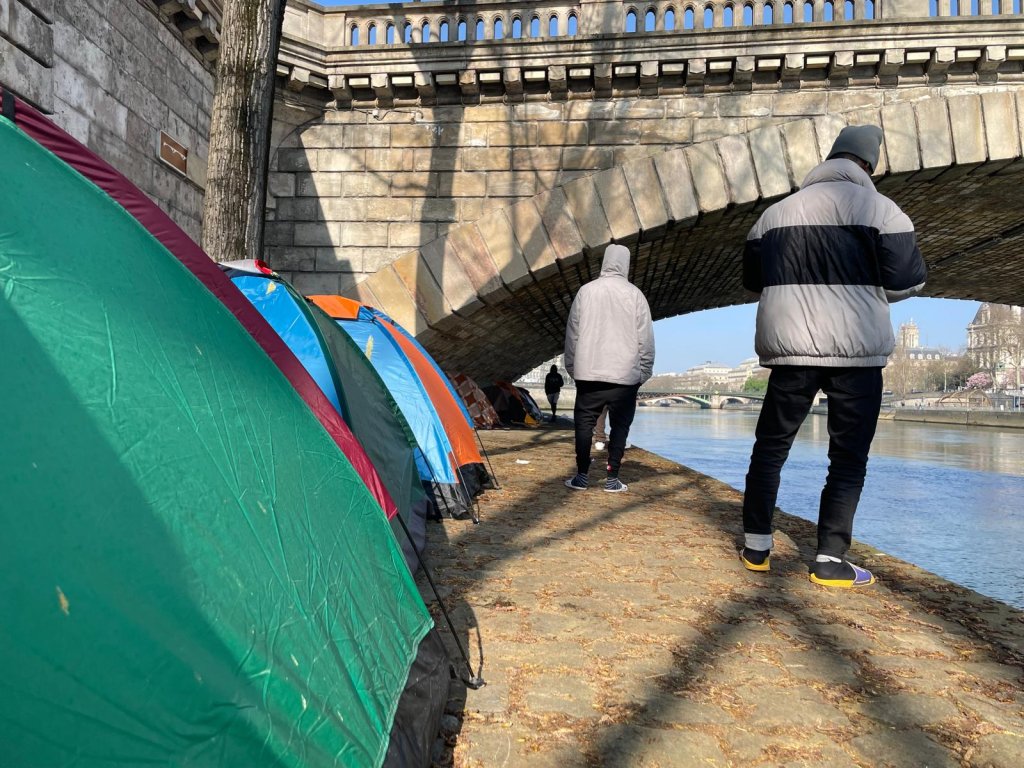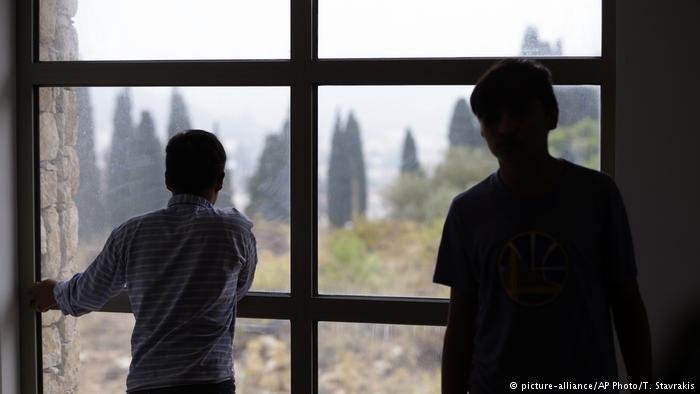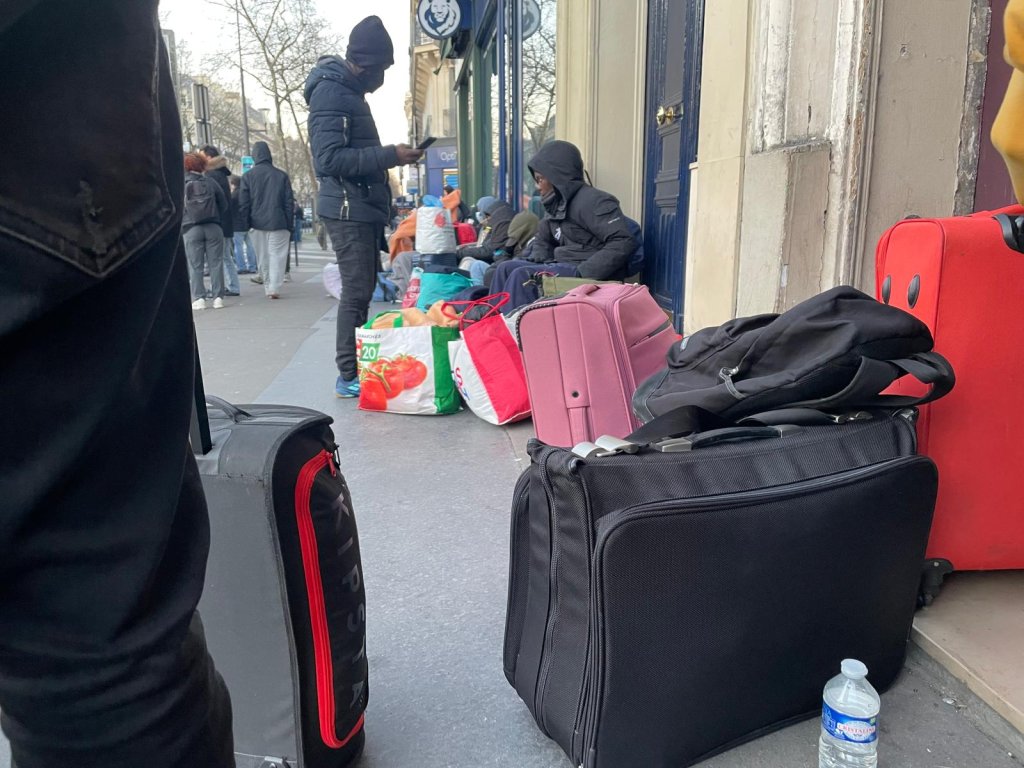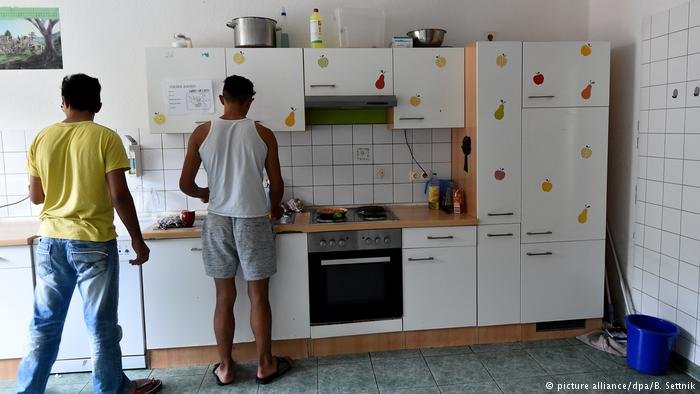UNICEF is urging France to stop criminalizing exploited minors and instead recognize them as victims of trafficking. The agency calls for urgent legal reform and a national strategy to prevent, identify, and protect affected children.
UNICEF, the UN child agency, and a number of NGOs urged France to better protect minors exploited by gangs for crime instead of prosecuting them.
"In France, children who are victims of criminal exploitation are too often prosecuted and punished for offenses committed as a result of their exploitation," UNICEF said.
"But international and European law requires them to be recognized and protected as victims of human trafficking."
UNICEF pleaded for "a complete overhaul of [France's] treatment of minors exploited to commit offenses".
In a detailed report released on July 30, to mark the World Day Against Trafficking in Persons, the UN agency issued 75 recommendations to improve the treatment of children exploited by criminal networks. The report paints a concerning picture of how these vulnerable minors are still too often perceived and treated as delinquents rather than as victims.
Read AlsoHope and futures on hold: Lengthy asylum process causing emotional harm for unaccompanied minors
Boys mainly affected
According to government data, more than two-thirds of individuals exploited for criminal purposes in France -- including drug trafficking, theft, and fraud -- are minors. NGOs report that 92 percent of these minors are unaccompanied, primarily from Algeria, Morocco, and other African nations, with a smaller number arriving from eastern and southern Europe.

Eighty-nine percent of victims are boys or young men.
"Those who exploit them use different strategies: addiction, blackmail, threats, psychological pressure, violence," said Corentin Bailleul, UNICEF France's advocacy coordinator.
"Young people who are exploited are often recruited under false promises or forced to act to survive or repay a debt."
Despite these circumstances, recognition of their victim status remains rare. Bailleul pointed to the 2024 "little thieves of the Trocadéro" trial as an exception. In that case, six Algerian nationals were convicted for controlling vulnerable minors through drugs and forcing them to steal from tourists. The Paris court described a "modus operandi where minors" were "reduced to the status of tools." Advocacy groups praised the ruling as a milestone.
Read AlsoFrance: Report slams territorial inequalities in unaccompanied foreign minors care
Few identified, fewer protected
UNICEF says France lacks effective tools to detect and support trafficking victims, making official statistics unreliable. In 2023, NGOs identified only 236 victims -- down from 352 in 2022.

By contrast, the United Kingdom identified 2,891 children as victims of criminal exploitation in 2024, thanks to a dedicated referral mechanism.
Germany has also taken proactive steps, establishing specialized support centers and training police to recognize trafficking indicators. UNICEF France highlights this model, citing improved coordination between government agencies and child protection services could be key to providing a better rate of protection in France too.
Read AlsoReport: Children and babies exposed to 'devastating violence' at the France-UK Border
Vulnerable to exploitation
The 2025 report Victims First: Protecting Children from Criminal Exploitation emphasizes how many minors face arrest and incarceration without their underlying exploitation ever being addressed.
"Since 2024, minors in conflict with the law have been at the heart of public and political debate," the report notes. "This approach overlooks a widely ignored reality: behind some delinquent behavior lies invisible exploitation, children under coercion and exploiters who act with impunity."

Children caught in these situations often come from precarious backgrounds marked by poverty, family instability, lack of education, or unsuitable placements. Recruiters prey on these vulnerabilities -- sometimes within the family, sometimes online or on the street -- using false promises or coercion.
Many endure "poly-exploitation", facing sexual abuse, forced labor, and criminal pressure simultaneously.
Despite the scale of the issue, frontline workers are rarely trained to detect signs of trafficking. "The way they are viewed is wrong... Police and justice officials need training so that their first instinct is to see these children as victims, not criminals," said Geneviève Colas, coordinator of the NGO collective Ensemble contre la traite des êtres humains (Collective against the traffic of humans).
Read AlsoFrance: Two migrant deaths reported on Channel coast
Clear legal obligations
UNICEF insists the French govermet must comply with international agreements, including the UN Convention on the Rights of the Child, the Warsaw Convention, and the Palermo Protocol, all of which require countries to protect children from trafficking and exploitation.
The organization calls for reform of the French penal code to ensure that "a person who is a victim of exploitation cannot be held criminally responsible when the offense committed is a consequence of trafficking."
It also urges changes to the civil code to specify that "any minor who is exploited, even occasionally, is deemed to be in danger and falls under the protection of the children’s judge."
Read AlsoFrance grants asylum to a Gazan mother and her son in landmark ruling
A broader European challenge
The issue of unaccompanied minors being exploited is not unique to France. Across Europe, countries are grappling with the challenge of protecting these vulnerable children.
In Germany, for example, the accommodation and care of young unaccompanied refugees has become increasingly difficult for states and municipalities. A lack of available housing and trained personnel compounds the problem.

According to a recent report by the German federal government, as of mid-year, 22,004 foreign unaccompanied minors and 19,713 young adults were under the care of child and youth welfare services. These figures mark the first decline in such numbers since October 2021.
At the end of last year, there were still 29,015 unaccompanied minors and 15,503 young adults in care. Despite the decrease, the federal government stated that the situation remains a significant challenge for regional authorities due to continued shortages in accommodation and professional staff.
In 2023 alone, 15,269 unaccompanied minors filed first-time asylum applications in Germany -- more than double the number in 2022 (7,277 applicants). The main countries of origin were Syria (40.7 percent), Afghanistan (39.9 percent), Turkey (5.4 percent), and Somalia (3.6 percent). Of those applying, 94.5 percent were male and 5.5 percent female. In total, 13,344 first-time asylum applications by unaccompanied minors were registered last year.
Read AlsoGerman court rules deportation of Yazidi family was legitimate
With AFP and KNA.
